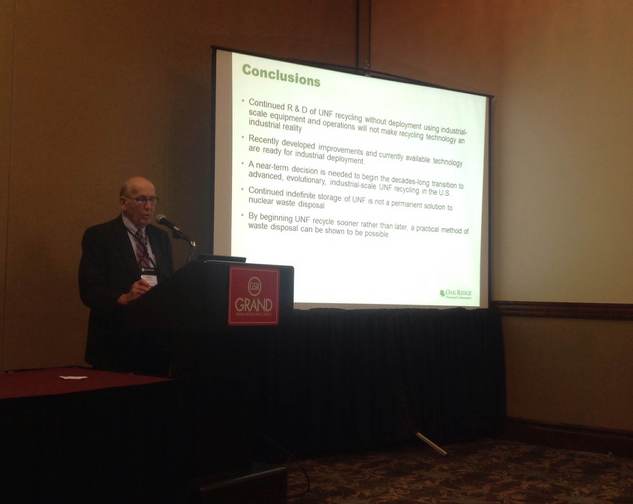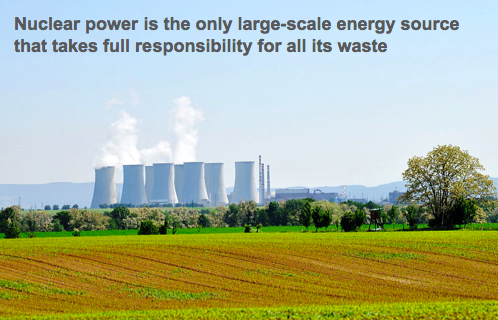While many in the United States might spend some time thinking of the many options for recycling household goods or food waste, few focus on the many reusable options that are available for used nuclear fuel.
The concerns with recycling used fuel include nonproliferation issues, cost, waste management requirements, and time factors related to radioactive decay, as expressed by Emory Collins from Oak Ridge National Laboratory at a gathering of the American Nuclear Society. However, Collins says that many of these issues can be addressed. “Engineered safeguards and safeguards-by-design can be used to provide adequate proliferation resistance and ensure nonproliferation security,” said Collins. “The cost to implement fuel recycle will be an insignificant change to the cost of nuclear electricity.”
Currently in the United States, nuclear fuel assemblies are used in a commercial reactor for about three years until they are removed and safely stored. The current plan in the U.S. is to dispose of this used fuel in a permanent geological repository. However, up to 95% of the used fuel can be recycled and used again as fuel in a reactor. Other countries, such as France, are actively recycling their fuel to “close” the nuclear fuel cycle.
Sven Bader of AREVA Federal Services made the case that uranium is a valuable nuclear material and that “its recovery and recycling saves natural resources.” AREVA is a French-based company that manages the recycling of used fuel in France and also provides the service for other European countries. While the technology is robust, Bader admits that without building new reactors in the US, there is a lack of justification for reprocessing because the economics do not add up.



 RSS Feed
RSS Feed

